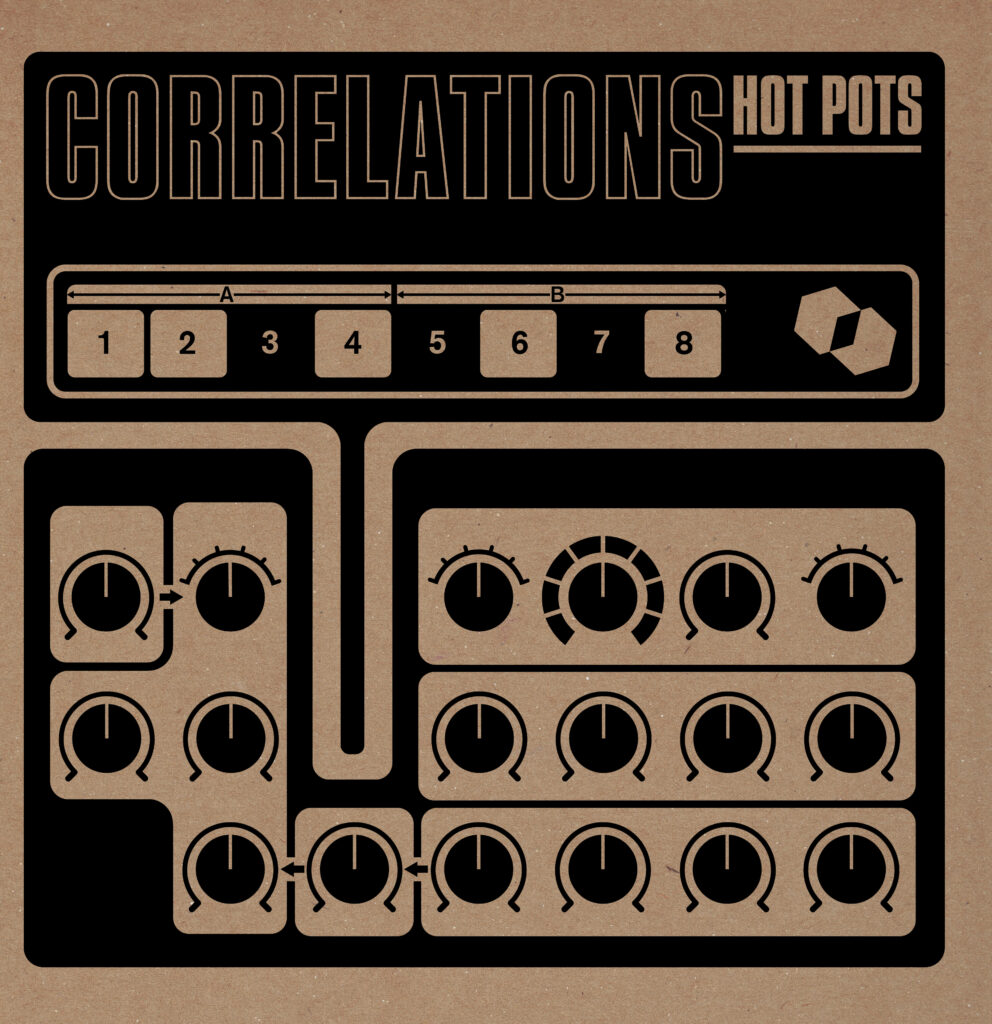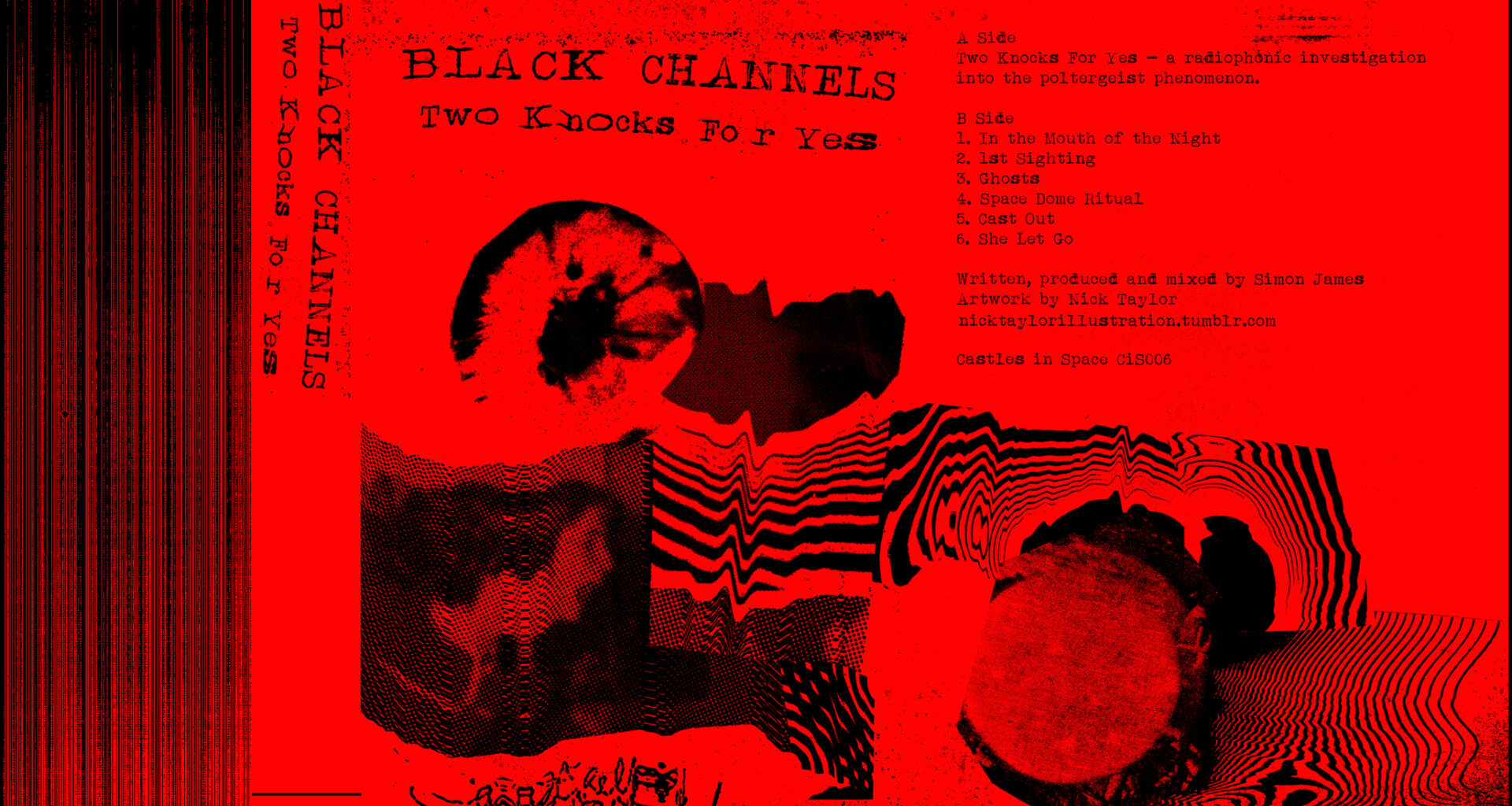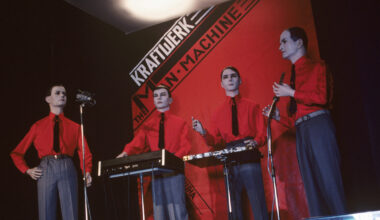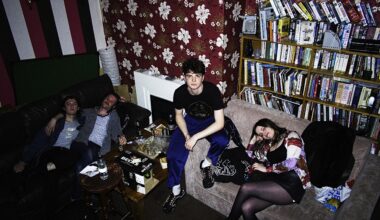With releases from the likes of Polypores and Concretism, Castles In Space is one of the UK’s most essential independent labels. And it all started in the unlikely setting of the bar at Barrow Association Football Club
“When I was playing in bands, I got a reel-to-reel tape recorder,” says Colin Morrison, the tireless powerhouse behind the prolific Castles In Space label. “So my dad dug out this tape he had from when I was about three years old. He’s saying, ‘Testing, testing… what do you want for Christmas?’. And I said, ‘I want a record player’.
“I’ve also got vivid memories of Pam, the girl next door, giving me her old Beatles singles. I guess it was that period in the late 1960s, when The Beatles went a bit too weird for the teenyboppers. I remember holding these singles with her name written on them and really loving them, playing them over and over again. I must have been four or five at that point.”
And so began a passage of musical discovery that has become a lifelong obsession for Colin Morrison. It’s been a significant factor in shaping the ethos of Castles In Space, whose sumptuously packaged releases have set the benchmark for immersive and innovative electronica since 2015. From the ambient fantasies of Polypores to the whirling psychedelia of Keith Seatman, the label has become a natural outlet for the restless tastes of this avuncular, softly-spoken Cumbrian.
“When you love music, you’re always looking for the next thing,” he explains. “When punk and post-punk happened, I really liked the obscure stuff. The limited singles. The weirder the better. And it wasn’t always about how it sounded, it was the whole package. Even the journey to find it sometimes, that’s what made it special for me. You bought records without knowing what they sounded like, based on reviews in the NME. We only had one or two record shops in Barrow and they often didn’t stock what I was looking for, so I made day trips to Manchester and Preston to fill up with all the music I’d read about.”
The northern coastal town of Barrow-in-Furness, where the declining fortunes of the local shipyard contributed to spiralling unemployment in the latter half of the 20th century, was perhaps not the most obvious base for the teenage Morrison’s first ventures into the musical underground. But as with a lot of small industrial outposts, adversity contributed to a thriving artistic community.
“There was definitely a scene there in the early 1980s and I was part of that,” he says. “It was one of those situations where everybody was in everybody else’s band.”
Morrison’s band were called Perfect Circle.
“We were kind of an 80s pop duo, heavily influenced by Aztec Camera,” he continues. “One of the first things I bought when I started working was an electronic keyboard and I learned about making music on that. Then I started to buy loads of Roland kit. I had a Juno-60 and a TR-909. All that gear, it’s worth a fortune now.”

A delve into the gentler corners of YouTube reveals ‘Only When It Rains’, a synth and sax-drenched Perfect Circle single from 1985. It boasts an anthemic chorus and a lyric appropriately reflective of the Cumbrian climate, sung with gusto by a fellow Barrow scenester.
“It was me and a lad called Jimi Tunn,” says Morrison. “Him on vocals and bass, me on keyboards. Jimi was brilliant. Bags of charisma. The objective for the band was to get our own seven-inch single pressed up and I was the one in charge of making that happen. Deep down, I knew I wasn’t a very good musician, but the organisational side of it was something I very much enjoyed… which is quite amusing in retrospect.”
An unhealthy interest in paperwork and a can-do punk attitude are essential attributes for anyone attempting to launch their own record label. The latter quality was one that Morrison acquired in the unlikely setting of Holker Street, home to Barrow Association Football Club, the recently promoted League Two side.
“We had these friends called Mike and Michelle,” says Morrison. “Mike was the singer in The Tier Garden, who were the best band in town. He also ran an indie night in the bar of the football club on Thursdays. He got bands like The Stone Roses, Happy Mondays and James up to Barrow to play there. I think a little of that rubbed off on me, you know. We used to think, ‘Why not us? What’s stopping us from making it happen?’. I carry a bit of that with me now. It’s a very punk thing, isn’t it? Get involved. Do it yourself.”
So what were The Stone Roses like, playing in the football club bar in Barrow-in-Furness in 1986?
“They were god-awful,” he laughs. “Absolutely terrible. Full of vim and vigour and saying, ‘You should love us!’. But I guess Barrow was a bit more resistant than their local Manchester crowd.”
Leaving Barrow in 1987 (“I couldn’t wait”), Morrison moved to acid house-obsessed London, where his teenage love of Kraftwerk and Eno solidified into a broader appreciation of contemporary electronica.
“London was blowing up with the rave scene,” he says. “I was never in love with those bare-bones acid house tracks, though. What I really loved was the second generation stuff, the ambient house stuff. They’re the records that I really got on board with. Warp’s ‘Artificial Intelligence’ series and Aphex Twin…”
And presumably ‘The Orb’s Adventures Beyond The Ultraworld’ too, given the title of the amniotic opus ‘Spanish Castles In Space’ on side two?
“It was a revelation for me,” he admits. “It was obviously in debt to those classic electronic albums, but it was also infused with the spirit of acid house and the ambient thing. It was a melting pot of everything I really loved. To me, it sounded like The Orb had taken acid house and made it better.”
With the onset of the new millennium, Morrison’s relentless musical curiosity led to his Castles In Space blog, which he now cites as a major influence on the label itself.
“I was always buying mags and fanzines because I loved to read about music,” he says. “So I enjoyed doing the blog and it had a little following for a while. This was when the internet was just opening up. I used to write about records that I owned, mainly the electronic ones, but there was a load of punk and post-punk on there too. It only ran for a short time before I killed it, but the label definitely grew out of the blog, even though it was years between one ending and the other starting.”

The launch of the Castles In Space imprint in 2015 was in many ways fuelled by Morrison’s teenage love of the full vinyl record experience. On those bus journeys home from the exotic record shops of Lancashire, he would devour every detail of his purchases – the credits, the sleeve notes, the coloured discs, the picture discs, the free posters, and all the rest.
“Absolutely,” he says. “And then there was a light bulb moment. When vinyl started getting popular again, I thought, ‘I could do something quite cool here’. I decided to do limited edition releases, but with lots of attention to detail and lots of love put into them. I know the thrill of getting a record that’s beautifully presented, especially when not many people know about it. So there’s a bit of exclusivity, a bit of one-upmanship, a bit of ‘I know about this but you don’t’.”
One thing is clear as he speaks animatedly from a fizzing Skype window, the shelves behind him overloaded and creaking with vinyl. This is a man not just in love with music, but with the physical presence of music. What is on the shelves is but a mere fraction of a vast collection.
“I’ve had to take out storage,” he blushes.
The debut Castles In Space release (CiS001 if you are taking notes) was Tauchsieder’s ‘Herd The Shadows’ EP. Ambient ripples lap around Colin Newman’s vocals – that’s Colin Newman from Wire, by the way – reflecting Morrison’s love of both gentle experimentalism and spiky post-punk. From the breezy psych-pop of Correlations to the melodic soundscapes of Australian duo Kl(aüs) and on through the retro new rave of The Home Current, subsequent records have defined Castle In Space’s admirably broad scope. But it was the 2018 release of Concretism’s ‘For Concrete And Country’ album that Morrison sees as a landmark.
“I’d been chasing Concretism for a while,” he notes. “Chris Sharp was releasing CDs on his own and I got in touch with him and said, ‘How about vinyl?’. That was a big deal for me. I thought, ‘This feels like a moment. This feels like it’s serious’.”
‘For Concrete And Country’ is a glacial distillation of Cold War paranoia, with Chris Sharp pouring his childhood fear of the four-minute warning into a collection of bleakly beautiful electronica. Other releases on the label have mined feelings of a similarly hauntological bent. The Soulless Party, The Twelve Hour Foundation and Jonathan Sharp have all used differing sound palettes to explore aspects of their unsettling 1970s childhood experiences, while Keith Seatman’s recent album, the extraordinary ‘Time To Dream But Never Seen’, merged his memories of sun-baked Southsea into a psychedelic fairground ride of hallucinogenic oddness, offering a portal into an older and stranger England.
It’s perhaps no surprise that Morrison is reluctant for Castles In Space to be pigeonholed.
“I am quite cautious about it,” he says. “I don’t want to be a hauntology label, although I do love loads of it. There are labels that have gone before me that are so much better at it, so I don’t want to be a pale copy of them. Ghost Box is the obvious one. I love a lot of their stuff, but I’m not going to try and compete with them. Why would I?”
Keith Seatman’s ‘Time To Dream But Never Seen’ is a case in point.
“When Keith sent me his album, it was already fully formed and I just knew it had to be on the label,” says Morrison. “It exists in its own genre, so it makes us better by expanding what we’re capable of.”
More expansions are planned, including a Castles In Space subscription library offering exclusives to Patreon backers. Stand by for previously unavailable gems from the Concretism bunker and entirely new albums by Polypores and The Heartwood Institute. On general release, meanwhile, there’s ‘Soleil Gris Eclatant’, a collection of woozy melancholia from French avant-gardist Bernard Grancher, and ‘It’s Not Too Early For Each Other’ by Clocolan, which invokes the spirit of Boards Of Canada. A new Twelve Hour Foundation album is imminent too, as is ‘Black Water’ by Everyday Dust, a darkly atmospheric set about the Loch Ness Monster.
While the search for Nessie continues, an equally bamboozling mystery is where Morrison finds the time and energy for all this, given that he maintains a full-time job in IT. At the time of our conversation, 8pm on a Thursday night, he is working US office hours for an American client. He is heading back to virtual meetings after our chat, claiming he’s unlikely to be in bed before 5am. Throughout the interview, his phone chirrups impatiently.
“I couldn’t do it if I didn’t love it,” he declares. “I don’t know how, but I make it work.”
He adds that the label’s relentless 2020 schedule may slow down next year, but he’s still planning one further extension of the remit – the reissuing of classic records previously unavailable on vinyl. Mordant Music’s haunting 2006 album ‘Dead Air’, in which the fruity tones of former TV continuity announcer Philip Elsmore guide listeners through an overwhelming welter of musique concrète, will soon be given the deluxe treatment.
“A continuity announcer lost in an abandoned television studio,” muses Morrison. “There’s something brilliant and evocative about the whole record.”
Anybody else on the hit list?
“I’ve been trying to get hold of Virginia Astley to do a repress of her ‘From Gardens Where We Feel Secure’ album,” he says. “It was another landmark for me, with her piano and those field recordings. So far, I’ve not been able to get hold of her, but I’d love to do the full Castles In Space number on that. How interested she’d be in doing it, I don’t know.”
Is that top secret, or can we mention it in print?
“Yeah, definitely!” he laughs. “Virginia, if you’re reading, get in touch.”
And with that, the perennially sleepless Colin Morrison goes back to his day job. At nine o’clock in the evening.
For more about Castles In Space, visit castlesinspace.com






